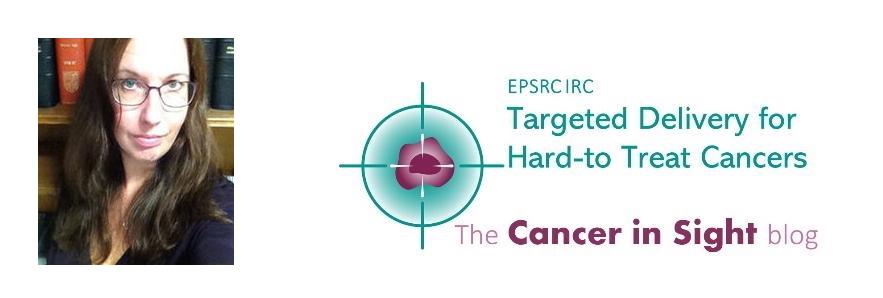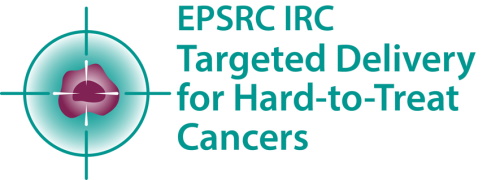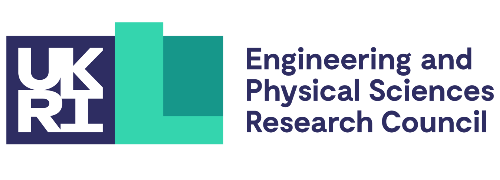
Following the All-IRC Annual Meeting in September, Claire McGlynn, IRC Programme Manager, reflects on the benefits of bringing together a multidisciplinary team and future prospects for the programme.
On 26 September 2022, around 30 IRC members including researchers, academics and clinicians from across the length and breadth of the country gathered in Cambridge for our annual All-IRC Meeting. The geographically dispersed, multidisciplinary nature of the IRC makes our in-person annual meetings a particularly important and productive event in our calendar. Meeting collectively enables our researchers to hear from clinicians about the current treatment landscape for patients, catch up on developments within the IRC programme and engage in discussions that establish future aspirations and create all-important synergies.
There is no doubt in my mind that the IRC research is set to leave a lasting legacy. I am looking forward to working on the remaining two years of the programme to make the most of what the IRC has achieved and ensure lessons learned and insights are shared with the wider research community to help drive better outcomes. Claire McGlynn IRC Programme Manager
This year’s event opened with a screening of a short film produced by the Cancer Research UK Cambridge Pancreatic Cancer Programme. The film presented interviews with pancreatic cancer patients sharing their personal experiences of living with the condition. Their views shone a light on the need for new approaches that will lead to better outcomes, including early detection and more effective therapies. This chimed with the IRCs aim to develop new technologies to effectively deliver drugs for the treatment of three hard-to-treat cancers: mesothelioma, pancreatic cancer and glioblastoma. Our research programme is driving the development and validation of drug-delivery technologies to support the work of clinicians and improve survival rates for patients. Clinicians have been engaged from the very start to map the real-life need for the technologies.
This important real-world aim of the IRC is a strong personal motivation for me. I am passionate about the value of research to society, and I joined the IRC following previous roles managing other programmes for knowledge exchange and research impact. The IRC programme is tackling an intractable problem that has immeasurable effects on real people's lives. The opportunity to help achieve that mission is therefore close to my own heart.
Delivering world class research is foundational to the success of the IRC programme. The multi-disciplinary structure of the programme brings together a cohort of academics and clinicians who are leaders in their fields, with enthusiastic and talented early career researchers. We want our early career researchers to be engaged, inspired and supported in their career development. The IRC provides them with significant networking prospects, and exposure to working with people from outside their own discipline silos is a rich source of opportunity. The meeting heard from our postdocs working on high-capacity delivery vehicles, implantable devices and injectable gels, manufacturing and validation. The researchers presented their most recent studies, including both progress and challenges. It’s vital for us to share all experiences – “the good, the bad and the ugly” – because this stimulates discussion and the exchange of ideas that can spark possible solutions to problems and new areas for investigation. Our combined effort between the physical sciences, life sciences, engineering and clinicians brings new perspectives that naturally leads to discussions continuing long after the event.
Our new partnerships with University of Liverpool and University of Strathclyde have strengthened our expertise in in-vivo validation which will speed up the journey from lab to clinic by enabling better understanding of the effects and behaviours of our technologies on cancer and other cells. This will help us to identify the most promising opportunities for future development. This diversity of approaches, models and skillsets from across the IRC enables us to generate richer data and build a wider and deeper understanding of the interactions between our technologies and biological systems.
As well as delivering a programme of world class research, we must also plan for the sustainability and legacy of the IRC – how to lock that down and enhance outcomes to reach beyond the programme itself. Bringing our teams together enables relationships to be consolidated and academics to identify opportunities to continue the collaborations that are the lifeblood of the IRC. Follow-on projects are already in the making including an MRC Confidence in Concept grant awarded to further explore the IRC’s hydrogel technology using models developed at the University of Nottingham – which goes beyond the original plan for the partnership and opens up new opportunities for the future.
There is no doubt in my mind that the IRC research is set to leave a lasting legacy. I am looking forward to working on the remaining two years of the programme to make the most of what the IRC has achieved and ensure lessons learned and insights are shared with the wider research community to help drive better outcomes.
This year’s in-person event closed with a keynote presentation by Professor Dean Fennell, at the University of Leicester, who highlighted innovations in systemic therapy for pleural mesothelioma – a condition that has seen scant progress in terms of treatments and patient outcomes for decades. Professor Fennell’s team are testing new treatments for mesothelioma and his presentation of recent clinical trials show real promise. This is extremely encouraging and, I hope, provides our incredibly committed research team with a timely reminder of the difference their work could make to the future of people affected by these hard-to-treat cancers.


